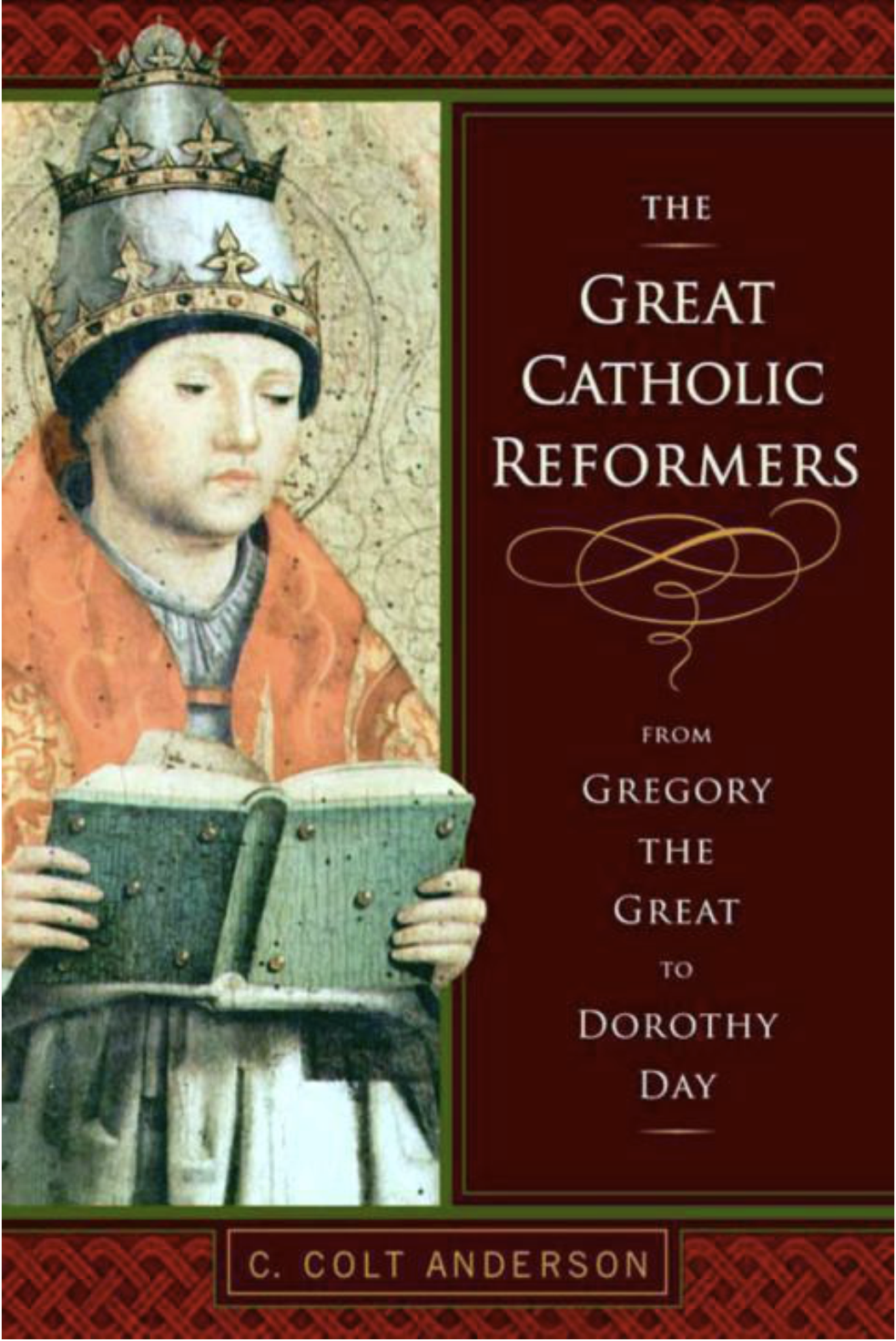I recently (5/18/09) finished reading Dr. C. Colt Anderson’s book “The Great Catholic Reformers: from Gregory the Great to Dorothy Day”.
As someone who has, in the past, prepared young Catholics for the sacrament of Confirmation, and who hopes to again, someday, I have been trained and know from experience the effective catechist preparing others for Confirmation constantly keeps in mind the seven gifts of the Holy Spirit which, by Catholic doctrine, the Confirmandi (those to be confirmed) will receive through the sacrament.
They are:
· Wisdom
· Understanding
· Counsel
· Fortitude
· Knowledge
· Piety
· Fear of the Lord (traditionally)
In the last few decades, there has been a creeping, unhealthy, in my opinion, obsession with avoiding what some, especially the untrained and uninitiated, popularly motivated, or the merely timid, may perceive as “negative” language. I refer to this heresy, if you will allow me the term, as the “Happy, Happy, Joy, Joy”, with apologies and/or royalties to Ren & Stimpy, syndrome. As if, an institution, the saving act of which was carried out through a cruel and brutal execution on a shameful instrument of torture: the cross; and which is the chief bulwark against a cosmic, spiritual battle of good vs. evil, could somehow only focus on the positive to the exclusion of reality, and keep on using the word Truth, without smirks both internal and external, and full body eye rolls teenagers are so fond of, cynics that they are or pretend to be. How pleasant, how easy, how politically convenient, and how unrealistic, that is. To that end, gift #7, the fear of the Lord, got a makeover. The name “awe” is now, and has been for some time, in fashion.
I take exception. While not doomsayer, I do not feel, as an experienced and certified catechist, this term accurately conveys the meaning intended. Receipt of this gift is never, was never defined as a sniveling, obsequious, groveling of the damned, deprived of human dignity type of fear, but rather in defining the only right, healthy relationship between beloved creature and loving Creator, in “the fear of the Lord is the beginning of Wisdom.” (Prov 1:7)
When I look at the Sears (now Willis) Tower, I feel awe. When I think about God, it is so much more than that, which is why I found the following excerpts from the Conclusion of Dr. Anderson’s book so poignant:
“They (the Great Catholic Reformers) believed the ultimate measure of accountability is found in the great commandment: to love God with all your heart and soul and to love your neighbor as yourself…
The reformers’ commitment to the idea that we will be held accountable for truly loving God and our neighbors…The notion of accountability to God and neighbor was traditionally grounded in the spiritual gift of the fear of the Lord. Unfortunately, the connection between fear of the Lord and accountability has largely been severed in current magisterial teaching.
Traditionally, the fear of the Lord did not simply mean that God was grand or awesome; instead, it was interpreted in light of the scriptural and creedal affirmations that Christ will return as judge. Because they believed in the authority of scripture, they held that the measure of the final judgment will be whether we loved God with our heart and our neighbors as ourselves. They accepted that those who fail to commit themselves to love and mercy will be punished, as Christ warned, even for the thoughtless words they use (Mt 13:36). Fear of the Lord gave the reformers the courage to obey God rather than people, customs, laws, or institutions;…
For the victims (of clergy sexual abuse), the loss of the sense of accountability to God makes it more difficult to heal their wounds. God’s justice is a mercy for those who have suffered real evil…
The imperfections of the church and of its members should not surprise or scandalize us. Jesus Christ warned us to expect ongoing problems and wicked members of the church. Even as we work to address sin in the church, the Messiah taught us to leave judgment to Him. To console those who have been wronged and to urge people to convert, Christ vividly drew out the consequences of malice and complacency with His parables. Reformers should keep the Lord’s description of the church in mind to avoid presumption and discouragement:
‘Again, the kingdom of heaven is like a net thrown into the sea, which collects fish of every kind. When it is full they haul it ashore and sit down to put what is good into buckets. What is bad they throw away. Thus it will be at the end of the age. The angels will go out and separate the wicked from the righteous and throw them into the fiery furnace, where there will be wailing and grinding of teeth.’ -Mt 13:47-50
The fact that the pilgrim church contains both the bad and the ugly within her communal life is no reason to lose heart and to reject her ability to fulfill her mission, nor should the mixed nature of the church lead us to despair of ever experiencing the healing sweetness of justice.”
“What good fortune for those in power that people don’t think.” – Adolf Hitler
“It ain’t those parts of the Bible that I can’t understand that bother me, it’s the parts that I do understand.” -Mark Twain (Samuel Clemens)
Love,
Matthew

